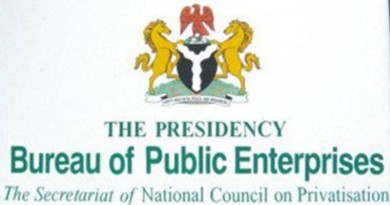CBN ISSUES EXPOSURE DRAFT ON GUIDELINES FOR BANK NEUTRAL CASH HUBS (BNCH) OPERATIONS IN NIGERIA
The CBN has issued the exposure draft for the operation of the Bank Neutral Cash Hub in Nigeria.
The attached guideline defines the registration requirements and operational procedures for the Bank Neutral Cash Hub which was conceptualized to offer bank-neutral cash withdrawal and deposit services to high volume/value cash transacting customers in a one-stop facility.
Provision of this service will serve to mitigate both risk and costs associated with currency management service provision.
The exposure draft is hereby issued for comments and observations. Please forward all feedback and enquiries in writing to the Director, Currency Operations Department, Central Bank of Nigeria or via email to [email protected] and [email protected].
Get the draft of the Bank Neutral Cash Hub Here
1.0 INTRODUCTION
The Central bank of Nigeria (CBN), in furtherance of its mandate to promote a sound financial system in Nigeria, in collaboration with Banker’s Committee initiated the Nigerian Cash Management System (NCMS) which seeks to reduce cost and improve operational efficiency in the country’s cash management value chain.
One initiative towards the above stated goal is the introduction of Bank Neutral Cash Hubs (BNCH). BNCHs are cash collection centers to be established by registered processing companies or Deposit Money Banks (DMBs) based on business needs. They will be located in areas with high volumes of commercial activities and cash transactions. The hubs will provide a platform for customers make cash deposits and receive value irrespective of the bank with which their account is domiciled.
This guideline aims to provide minimum standards and requirements for BNCH registration and operations for effective supervision.
2.0 OBJECTIVE
The key objective of setting up Bank Neutral Cash Hubs (BNCH) is to reduce the risks and cost borne by banks, merchants and huge cash handlers in the course of cash management activities; deepen financial inclusion; and leverage on shared services to enhance cash management efficiency.
3.1 PERMISSIBLE AND NON-PERMISSIBLE ACTIVITIES
- Permissible Activities
A BNCH may carry out the following:
- Receipt of Naira denominated deposits on behalf of financial institutions from individuals and businesses with high volumes of cash.
- High volume cash disbursement to members of the public on behalf of financial institutions.
iii. Any other activities that may be permitted by the CBN.
3.1 Non Permissible Activities
A BNCH shall not:
- Carry out investing or lending activities.
- Receive, disburse, or engage in any transaction involving foreign currency.
- Undertake any other transaction which is not prescribed by this guideline.
- Sub-contract another entity to carry out its operations
- Any other activities that may be prohibited by the CBN.
4.1 ELIGIBLE PROMOTERS
The following may apply for registration of a BNCH:
- Deposit Money Banks (DMBs)
- Cash Processing Companies (CPCs)
5.1 REGISTRATION REQUIREMENTS
The promoters shall submit a formal application to the Director, Currency Operations Department (COD) requesting to be granted approval to operate a BNCH, which shall be processed in two stages, namely: Approval-in-Principle (AIP) and Final Approval.
5.2 Requirements for Approval-In-Principle (AIP)
- Prospective promoters of BNCH (CPC or DMB) seeking to operate a BNCH shall apply in writing to the Director, Currency Operations Department (COD) and submit the following documents with the application:
- A valid DMB license or a valid proof of CPC registration issued by the CBN;
- A non-refundable application fee of
N100,000 only, or such other amount as the CBN may specify, in a bank draft payable to the CBN;
- Evidence of board resolution approving the application duly signed by the Chairman and Secretary of the board of the CPC or the DMB;
- Detailed business plan or feasibility report which shall, at a minimum, include:
- Objectives of the BNCH;
- Services to be rendered by the BNCH;
- Justification for the application;
- Organizational structure, showing functional units, responsibilities, reporting relationships;
- List of proposed staff in charge of BNCH operations/services;
- Technical Services Agreement (where applicable); and
- Certificate of Incorporation and certified true copies of other incorporation documents of the CPC or the DMB;
- Detailed Manuals and Policies, including but not limited to:
- Operations manual;
- Dispute resolution protocols
- Whistle-blowing policy;
- Enterprise Risk Management (ERM) Framework
- Code of Business Ethics and Conduct.
- Following the receipt of an application with complete and satisfactory documentation, the CBN shall issue a no objection to the promoters of the BNCH.
- In all cases, the CBN shall communicate its decision to the promoters within thirty (30) days of receipt of the application.
5.2 Requirements for Grant of Final Approval
Upon the issuance of no objection to the application and before the grant of Final Approval to operate as BNCH, the promoters shall submit the following:
- Evidence of location of office (rented or owned) for the takeoff of the business;
- Evidence of ability to meet technical requirements and provision of modern infrastructural facilities such as office equipment, computers, telecommunications, to perform the BNCH’s operations and meet CBN and other regulatory requirements;
- Evidence of insurance to cover hub vault cash.
- Evidence of collaboration with the Nigeria Police Force (NPF).
- A facility with; adequate office space for day-to-day operations; a secure mini- vault for storage of cash; basic security infrastructure such as 24/7 electronic CCTV surveillance, access control and monitoring etc by appropriate security personnel.
- Secure connectivity with the Nigerian Interbank Settlement System (NIBSS) who must provide interoperability amongst DMBs to establish a platform for customers at the BNCHs to receive same day value for their deposits.
- Provision of Service Level Agreement between Currency Processing Company and Deposit Money Bank, for the extension of clearing, settlement and indirect connectivity with NIBSS.
- Internal Control Policy;
- Business Continuity Plan;
- Comprehensive plan on the commencement of the BNCH’s operations with
- milestones and timelines; and
- Evidence of staff training program.
- Evidence of insurance of total deposits
5.2 Financial Requirements
The financial requirements for an approval to operate as BNCH, which may be amended by the CBN as it deems necessary, are as follows:
- Non-refundable application fee of one hundred thousand Naira (
N100,000); and - Non-refundable approval fee of five hundred thousand Naira (
N500,000).
5.3 Conduct of Pre-Approval Inspection
As a requirement for the grant of final approval, the CBN shall conduct an inspection of the premises and facilities of the proposed BNCH to, amongst others:
- Check the suitability of the physical structure of the office building and infrastructure provided for take-off of the BNCH;
- Sight the original copies of the documents submitted in support of the application for Approval; and
- Meet with the Management team.
5.4 Post-Commencement Requirements
A BNCH shall:
- Comply with the requirements incidental to the authorization to perform its operations as stipulated by the CBN from time to time;
- Comply with all guidelines and regulations issued by the CBN;
- Maintain an adequate accounting system and keep records that capture information which reflect the financial condition of the;
- Notify CBN upon commencement of operations.
5.6 Technology Requirements
The technology implemented by the BNCH shall comply with the industry standard technology in terms of hardware and software. The BNCH shall ensure that:
- Transaction information is transmitted in a secure manner.
- The technology deployed comprises a set of interoperable infrastructure modules that work seamlessly with the common platform provided by NIBSS.
- Customers get immediate value for successful transactions.
- Payment instructions are instantly executed.
- Immediate reversal shall be mandatory, In the event of communication failure during a transaction,
- Generation of receipts or durable acknowledgements for successful transactions.
- Audit trail is maintained and made available on request.
- All settlement information details are preserved for a minimum period of 5- years, and are made available via the Cash Activity Reporting Portal (CARP).
- The BNCH shall put in place adequate measures to mitigate all the risks that could arise from the deployment and use of its IT architecture.
5.7 Data and Network Security Requirements
BNCHs shall put in place systems that specifically and at a minimum address the following issues:
- Availability of services.
- Data confidentiality and integrity.
- Encryption of electronic transactions.
- Customer accountability and non-repudiation of transactions.
- Error messaging and exception handling.
- Secure integration to the Cash Activity Reporting Portal (CARP).
6.1 ROLES & RESPONSIBILITIES
6.2 Role/Responsibilities of CBN
In line with the CBN Act 2007(as amended), the CBN shall:
- Register and de-register;
- Exercise regulatory and supervisory functions, which include:
- Prescribing minimum criteria for the operation of BNCHs;
- Prescribing permissible activities;
- Regular monitoring of industry activities;
- Reporting on industry performance;
- Imposing sanctions for infractions; and
- Exercise any other powers in line with the BOFIA 2020, the CBN Act or any other applicable law.
6.2 Role/Responsibilities of BNCHs
The role/responsibilities of BNCHs shall include:
- Provision of all the requirements listed above for the operation of the BNCH.
- Ensuring that only registered Cash-In-Transit (CIT) companies are engaged for cash movements to and from the BNCH site.
- Proper record keeping, evacuation, accounting and reconciliation process shall be maintained.
- Adequate employment policy (casual staff shall not be engaged). Background checks by security agencies and biometrics data capture shall be carried out on all employees.
- Verification, approval and accountability for the credibility and integrity of their partner organizations.
- Seeking and obtaining necessary approvals from relevant regulatory authorities.
- The deployment and delivery of the cash deposit and withdrawal services to the customer.
- Ensuring that the BNCH meets all specified standards as provided in these Guidelines.
- Putting in place adequate measures to mitigate all the risks that could arise, following the deployment and use of its service.
- Providing access for on-the-spot assessment and verification of its transactions by the CBN.
- Providing regulatory reports (on activities, assets and expenditure) in line with the reporting requirements of the Cash Activity Reporting Portal (CARP).
- Keeping records of transactions emanating from the BNCH’s system for a minimum of seven (7) years.
- Ensure that dispute resolution mechanisms are in compliance with CBN Consumer Protection Regulations 2019.
- Submission of incident reports to the Bank in the event of any occurrences outside of the ordinary, as specified in the BNCH operations manual.
- The BNCHs shall display in a conspicuous place on its premises the following:
- Name and logo.
- Services offered.
- A notice to the effect that services shall be provided subject to availability of funds and confirmation of debit from customer’s account for withdrawal services.
- Charges or fees applicable for each service which are payable by the customers.
- The dedicated telephone number(s) and email addresses through which customers can contact the BNCH.
- Times/Period during which services are available to members of the public.
6.2 The Role/Responsibilities of Cash-In-Transit (CIT) Company
The role/responsibilities of CIT Company shall include
- Securely move cash as and when engaged by BNCH in line with the revised guidelines for registration of CIT & CPCs.
6.3 The Role/Responsibilities of Deposit Money Banks (DMBs)
The role/responsibilities of DMBs shall include:
- Ensure the provision of all services, within agreed timelines, as specified in Service Level Agreement (SLA) with the BNCH.
- Ensure unhindered access to all relevant information where disputes or any other issues arise.
- Ensure the resolution of all disputes within the time limits prescribed in CBN Consumer Protection Regulations 2019.
6.4 The Rights/Responsibilities of Customers
The rights/responsibilities of Customers shall include:
- Privacy, Trust and Security of transaction
- Accessibility to funds on completion of transaction process within the defined settlement cycle of not later than same day.
- Easy and prompt access to dispute resolution process
- Ensure prompt reporting of fraud cases, errors and complaints
- Ensure proper confirmation of transaction and account details before authorizing transactions.
- Comply with all security rules as provided by the BNCHs.
- Escalate complaints to the Consumer Protection Department (CPD) of the Central Bank of Nigeria, if resolution of complaints takes longer than prescribed time limits in CBN Consumer Protection Regulations 2019.
7.0 FEES AND COMMISSIONS
Service charges, fees and commissions shall be subject to CBN’s regulatory approval.
8.1 THRESHOLD FOR DEPOSIT AND WITHDRAWAL LIMIT AT CASH HUB FACILITY
The threshold for eligible transactions at a BNCH shall be as follows:
- A minimum transaction value of ₦500,000 (Five hundred thousand Naira only) for individuals.
- A minimum transaction value of ₦1,000,000 (One million Naira only) for corporate entities.
9.1 SUPERVISION
- Compliance
BNCHs are expected to comply with the following in the course of their operations:
- CBN Cashless Policy.
- CBN Consumer Protection Regulations.
- Provisions of the Central Bank of Nigeria Anti-Money Laundering and Combating the Financing of Terrorism in Banks and Other Financial Institutions in Nigeria Regulation and extant laws of the Federation aimed at combatting money laundering and the financing of terrorism.
- Cash handling charges as approved by the CBN from time to time.
- Extant CBN Guide on charges for banks and other Financial Institutions.
9.2 Monitoring
9.2.1 CBN shall have right of access to the BNCH facility for the purpose of compliance monitoring of activities and examination of records/books.
- BNCH shall comply with the reporting requirements and timelines specified in the Cash Activity Reporting Portal (CARP) Industry Handbook by providing data and information not limited to:
Total number of customers and cumulative value and volume of transactions to their name;
Volume and value of withdrawal and deposit transactions; Incidents of fraud, theft or robbery;
Nature and number of customer complaints and remedial measures taken. Any other report as may be required by the CBN.
- BNCH shall include in its annual reports and accounts, all activities of its operations.
10.1 CONSUMER PROTECTION & DISPUTE RESOLUTION (BY DMBs & CPCs)
- Consumer Protection Measures
BNCHs operators shall:
- Ensure that a channel of communication is in place 24/7 to entertain enquiries and complaints from customers.
- Clearly inform customers of all charges for services
- Ensure that appropriate consumer protection mechanisms are put in place against loss of service, fraud and privacy of customer information to enhance confidence in the BNH services.
- Provide the leading role in dispute resolutions and take necessary steps to reach other agencies in the ecosystem that are relevant to resolving disputes.
e. Resolve customer complaints within a reasonable time and not later than 48 hours from the date of reporting or lodging the complaint with the BNCH
10.2 Dispute Resolution Mechanisms
Any dispute that arises should be resolved in line with any Service Level Agreement (SLA) in place and extant CBN consumer protection regulations.
11.1 CESSATION OF BNCH SERVICE
The cessation of operations of any BNCH can be:
- By order of the CBN.
- By any licensed BNCH operator subject to not less than ninety (90) days’ notice to the CBN.
The CBN shall have powers to order any BNCH to meet its outstanding obligations before shutting down its operations.




